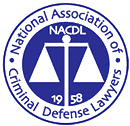Connecticut Domestic Violence Laws & Penalties
Connecticut law defines domestic violence as a range of offenses committed between people who share certain relationships, such as spouses, former partners, co-parents, roommates, or relatives by blood or marriage. Under Connecticut General Statutes § 46b-38a, domestic violence includes crimes such as assault, threatening, stalking, harassment, and unlawful restraint within a family or household context.
In Hartford, law enforcement and prosecutors respond quickly to these alleged offenses, following strict state guidelines and community safety standards. Consequences for a domestic violence conviction are severe and will vary widely depending on the type and severity of the charges.
These penalties may include:
- Probation
- Mandatory counseling
- Loss of firearm rights
- Restraining orders
- Incarceration
Connecticut grants the courts broad authority to issue criminal protective orders at the start of a case, which may apply even before a hearing occurs. A conviction can also affect employment for those working in public service, education, or childcare. Immigration status may also be impacted.
When you work with a domestic violence defense attorney in Hartford who understands how local law enforcement, prosecutors, and courts respond to these charges, you can receive guidance on the penalties you might face and information on the factors that could influence your case. This can prove invaluable moving forward.
Challenging Hartford Domestic Violence Charges
In Connecticut domestic violence cases, the court acts quickly after an arrest—often within the next business day. At the arraignment hearing, a judge reviews the allegations, sets conditions of release, and frequently issues a protective or restraining order.
These orders can place serious restrictions on the accused, such as:
- Prohibiting contact with the alleged victim or family members
- Requiring the accused to move out of the home
- Mandating the surrender of firearms
- Ordering participation in counseling or court-approved programs
The Hartford Superior Court on Washington Street handles a high volume of these cases and uses dedicated domestic-violence procedures, so judges and prosecutors are very familiar with the personal and fast-moving nature of these matters. Because of that, it’s critical to follow every condition exactly. Missing court, contacting someone you were ordered not to, or failing to turn in firearms can result in additional charges.
The process can feel overwhelming, but understanding what happens at arraignment, what your protective order actually says, and how Hartford’s local court handles these cases gives you a better chance of staying compliant while your lawyer works on the underlying charges. Involving a Hartford domestic violence lawyer before the first court date can also help request a more limited order or seek a modification later.
Protective Orders, Court Appearances & the Legal Process
In Connecticut domestic violence cases, the court acts quickly after an arrest—often within the next business day. At the arraignment hearing, a judge reviews the allegations, sets conditions of release, and frequently issues a protective or restraining order.
These orders can place serious restrictions on the accused, such as:
- Prohibiting contact with the alleged victim or family members
- Requiring the accused to move out of the home
- Mandating the surrender of firearms
- Ordering participation in counseling or court-approved programs
The Hartford Superior Court on Washington Street handles a high volume of these cases and uses dedicated domestic-violence procedures, so judges and prosecutors are very familiar with the personal and fast-moving nature of these matters. Because of that, it’s critical to follow every condition exactly. Missing court, contacting someone you were ordered not to, or failing to turn in firearms can result in additional charges.
The process can feel overwhelming, but understanding what happens at arraignment, what your protective order actually says, and how Hartford’s local court handles these cases gives you a better chance of staying compliant while your lawyer works on the underlying charges. Involving a Hartford domestic violence lawyer before the first court date can also help request a more limited order or seek a modification later.
Facing Domestic VIOLENCE Allegations? Choose our Local Hartford Defense Lawyers.
The penalties you face could be significant, but our firm is equipped to take on your case. We understand the strategies prosecutors use, and we can utilize a range of defenses on your behalf. As Hartford domestic violence defense lawyers, we work as a team and use each of our strengths to build your defense. If we represent you, you will have access to both partners at our firm. Our knowledge of domestic violence as a violent crime can benefit you as we advocate for your rights.
Domestic violence laws in Connecticut are complex and involve both criminal and family court proceedings. The court may require you to attend counseling or prohibit any contact with the alleged victim, even before your case goes to trial. If children are involved, additional restrictions may apply, such as supervised visitation or temporary custody changes decided by the Hartford Family Court. Each step in the legal process comes with specific deadlines and documentation requirements, so you need a clear understanding of local court expectations and timelines.
During this challenging time, you need a knowledgeable and dedicated domestic violence lawyer in Hartford. We understand the state and federal laws that can shape your case. Law enforcement treats domestic violence complaints seriously. These cases often happen within a home, where there are no cameras or third-party witnesses. Our lawyers are prepared to conduct thorough investigations and provide the defense you need to protect your rights.
Frequently Asked Questions
What happens immediately after a domestic violence arrest in Hartford?
Police in Hartford typically transport anyone arrested for alleged domestic violence directly to the police station for booking. The arrested person then appears at Hartford Superior Court for arraignment, usually on the next business day. The court may issue a protective order and will outline further steps based on the specifics of the case.
Will a domestic violence arrest affect my ability to return home?
Courts often issue a protective order right after a domestic violence arrest. This order may prevent you from returning home or having contact with the alleged victim until the court modifies or removes the order. Violating a protective order can result in additional criminal charges.
What are common penalties for a domestic violence conviction in Connecticut?
Domestic violence convictions can carry a range of penalties, including probation, mandatory counseling, community service, loss of firearm privileges, and jail time for more serious charges. The court tailors the exact penalties based on the facts of each case and any prior criminal history.
Don't leave your future to chance. Contact a domestic violence defense lawyer in Hartford today and find out what can be done to protect your rights and interests.














